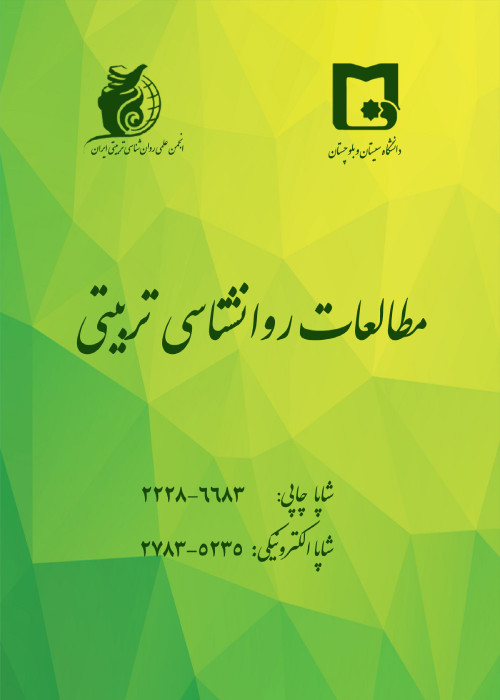The role of different types of teachers’ thinking styles in the effectiveness of classroom instruction from the perspectives of teachers and students: Case Study of elementary Schools in Shiraz
In this study,the role of different types of teachers' thinking styles in the effectiveness of classroom instruction in primary schools in Shiraz were studied. Participants of this study included 120 teachers and 360 primary school students in the city of Shiraz were selected by multistage random cluster sampling.Scales used in this research included Sternberg thinking styles inventory, the classroom teaching effectiveness through the perspective of the teachers and teacher classroom teaching effectiveness through the perspective of the students. Factor analysis was used to investigate the validity of research tools and Cronbach alpha coefficient was used to assess reliability.The results showed acceptable reliability and validity of the scales. The multiple regressions and SPSS software was used for data analysis. Results showed that the most common thinking style is the "judgment thinking style". All the three thinking styles had a significant positive correlation with the classroom teaching effectiveness. Legislative thinking style and executive thinking style could predict the classroom teaching effectiveness, but judgment thinking style could not be a significant predictor for effectiveness of classroom teaching.The results indicate that there is statistically no significant difference between correlation of thinking style and classroom teaching effectiveness in four districts (what districts?).Also in the fifth and sixth grades, there was no significant differences in regard to correlations between thinking style and classroom teaching effectiveness. This shows the role of thinking styles of teachers in the classroom teaching effectiveness ( this doesn’t make sense here?).Detailed discussions about the justification of the results, presented in the thesis
- حق عضویت دریافتی صرف حمایت از نشریات عضو و نگهداری، تکمیل و توسعه مگیران میشود.
- پرداخت حق اشتراک و دانلود مقالات اجازه بازنشر آن در سایر رسانههای چاپی و دیجیتال را به کاربر نمیدهد.



